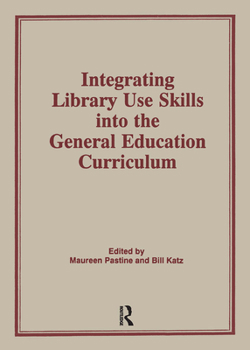Integrating Library Use Skills Into the General Education Curriculum
This provocative new book will help you design and implement the most effective library user education possible--one that builds on basic library use skills through a progressively sophisticated program that is fully integrated into course curriculum at all levels, from the freshman year to graduation and beyond. By exploring major issues underlying the integration of library use skills and research methodologies into the general education curriculum, contributors raise important questions, offer creative ideas, and provide insight into the many improvements made in library instruction in the past few years. Following an introduction by Patricia Breivik, a recognized national authority on libraries and general education, contributors representing two- and four-year institutions and research universities discuss such issues as the relationship between high school and college programs, research skills instruction in a remote access environment, the use of microcomputers and end user searching programs to promote critical thinking, and the improved relationship between librarians and faculty. In addition to articles on library instruction geared towards question analysis, information generation by field, structure of published knowledge and dissemination of a discipline's literature, chapters identify cooperative efforts needed among school, public, special, academic libraries and other information agencies, computer center personnel, and online database vendors. Bibliographic instruction librarians who are active participants in planning and administering library user education programs will find this volume to be essential for building and developing stronger, more integrated programs.





